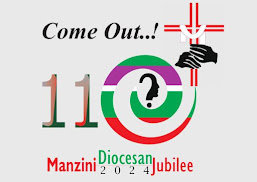 |
| Mike Pothier |
Thanks to the support of the Dennis Hurley Peace Institute I came to Cape Town for a three days' workshop organized by the Parliamentary Liaison Office of the Southern African Catholic Bishops' Conference (CPLO)
We are eight people from four countries (Namibia, Nigeria, South Africa and Swaziland): six lay people, one priest and... one bishop.
The Parliamentary Liaison Office of the Southern African Catholic Bishops’ Conference (SACBC) is the official vehicle for contact and dialogue between the Catholic Church in South Africa on the one hand, and the country’s Parliament and government on the other. It provides an avenue for the Church – as part of civil society – to contribute to debates on issues of public policy, to exert an influence for the common good in areas of political, economic and social concern, and to help shape legislative and policy developments.
http://www.cplo.org.za
Mike Pothier (research coordinator for the last 20 years) introduced us this morning to the origins and history of the CPLO in South Africa starting from much earlier than the last 20 years when the CPLO was born. We went through elements of the history of South Africa: the relationship between the Catholic Church and the South African government; the time of the "three dangers" (the spread and avance of communism in the continent, the "black danger" and ... the Roman danger because of the theology of the Catholic Church).
While during the '80s and '90s the active presence of the Christian churches in the fight against apartheid was acknowledged and appreciated, with the coming of democracy in 1994 the voice of the Christian churches started to be missed. That is how the project of a liaison office was born in 1996 and started functioning the following year.
Located in Cape Town, the seat of Parliament (and just across the road!):
and during these days we will briefly introduced to their work:the office reports to a bishop designated as the link between it and the conference (presently Bishop Kevin Dowling CSsR, of the Diocese of Rustenburg) and accounts for its activities at the biannual plenary meetings of the Bishops’ Conference.
Formal submissions are made on legislation before parliament.Written responses are made to policy documents such as Green Papers and White Papers, reports of the Law Commission and the like.Informal contact with members of parliament, cabinet ministers and senior civil servants is an important and fruitful part of the work.Attendance at parliament, on notable occasions such as the annual opening and the budget speech, and at everyday committee meetings or question time, is a way of showing the interest and involvement of the Church, and of interacting with the parliamentary process.Networking and, when necessary, forming alliances with other civil society organisations and parliamentary monitoring groups in order to maximise resources and capacity when working on the same pieces of legislation.Roundtable Discussions are organized for civil society focus groups and/or MPs who work together on the same pieces of legislation. Outside experts are invited to give input.Research is conducted at the request of church leadership and includes analysis of the likely effects of a law, summaries of government policy or tracking a piece of policy or legislation through its developmental stages.
Their service has not been limited to South Africa. Like it is happening these days, the CPLO regularly offers training to delegates from other countries of Africa some of which have been able to set up their own Parliamentary office. The map above shows all the places where people have been trained.
We are grateful to those who made this training possible and... we look forward to the next two days.




